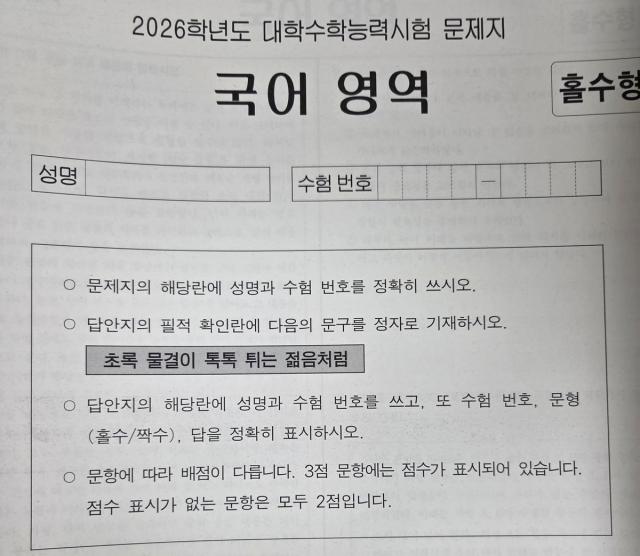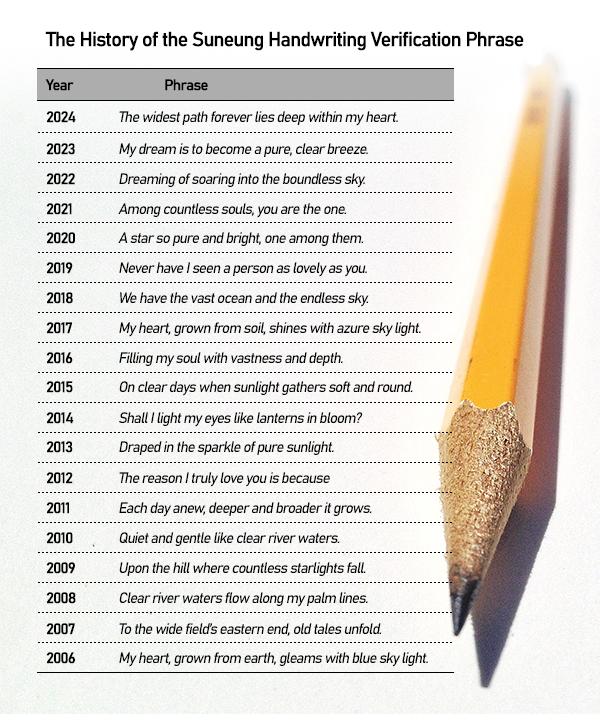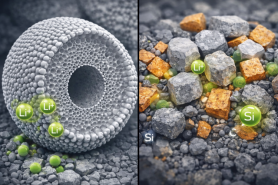
Suneung is a cruel make-or-break ritual that can shape a student’s entire adult trajectory in Korea, a society long obsessed with a handful of elite universities. It is a day of excruciating tension not only for test-takers but also for their parents, as even a single slip can upend years of effort.
To stay composed, Koreans have developed an array of personal and collective rituals. Among them, the so-called handwriting verification phrase stands out as a uniquely Korean Suneung invention—born both to prevent foul play at test sites and to serve as a last-resort safeguard in identifying test-takers.
The phrase appears on each of the five typical test sets administered throughout the day, and every test-taker must write it by hand on their answer sheet. The line is chosen with care: it must support the design of handwriting authentication and leave a lasting emotional impression on students facing one of the most consequential tests of their lives.
For the 2025 Suneung, the phrase was:
“Unfurl your grand dreams upon the boundless world.”
It comes from a work by poet Gwak Ui-young, a late-blooming Daegu poet whose 2023 debut collection Launching a Boat at Sunset includes the poem Only One Beautiful Daughter.
The tradition dates back to 2006, introduced after widespread cheating scandals in the 2005 exam. The first handwriting phrase quoted one of Korea’s most revered poets, Yun Dong-ju, whose line “May I have no shame when I look up at the sky” from his poem Prologue evokes moral integrity under colonial oppression.

The phrases are chosen by exam committees under strict criteria: they must span 12–19 Korean characters, include at least two distinctive consonants such as ㄹ, ㅁ, ㅂ, and feature at least one double consonant, all to ensure clear handwriting authentication. At the same time, they must deliver messages of hope and encouragement—words meant to steady the hand, soothe the mind, and perhaps bring a measure of luck to the young Koreans facing their critical day.
Copyright ⓒ Aju Press All rights reserved.



